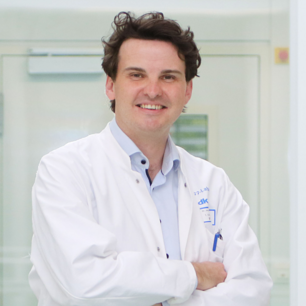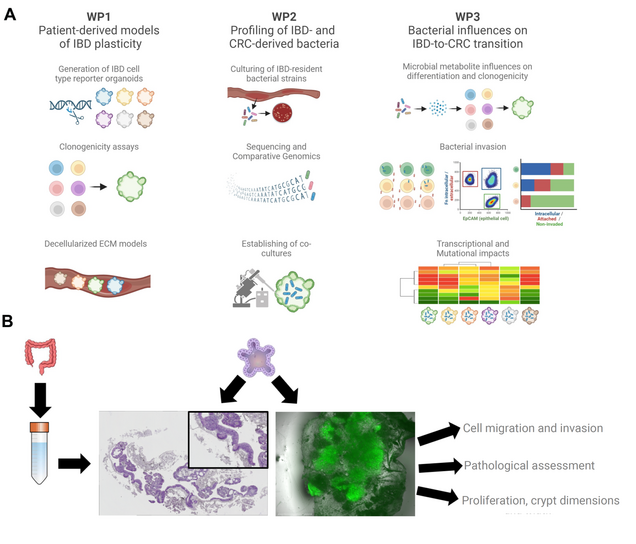Seed Funding Program 2023
BACPLAS
Microbial influences on epithelial plasticity in inflammatory bowel disease (IBD)
Coordinators

Matthias Schewe
Stem cells and their niche, UMM

Jens Puschhof
Microbiome and Cancer, DKFZ
Detailed description
The BACPLAS project aims to gain profound insights into the relationship between the gut microbiome and cell plasticity – the ability of cells to adopt various functions. Our research approach focuses on unraveling the complex mechanisms involved in the transition from chronic inflammatory bowel diseases (IBD) to colorectal cancer, relying on organoids generated from patient samples. These organoids act as patient-centric models of the individual disease state by preserving many characteristics of the original tissue sample.
Our primary goal is to identify previously unknown ways through which bacterial influences modulate cell plasticity. For this purpose, we cultivate organoids from tissue samples of IBD patients and expose them to patient-specific bacterial strains to achieve an accurate replication of the individual’s gut microbiome. Through comprehensive molecular analyses and the application of multi-omics techniques, we plan to investigate changes in gene expression and metabolic pathways associated with cell plasticity. Particularly useful for these endeavors are innovative, so-called decellularized (cell-free) gut models (dECM), which are colonized with fluorescent organoids and allow for studies of bacterial interaction over many months (see figure).
This research initiative is crucial for our understanding of the progression from IBD to colorectal cancer, shedding light on the complex interactions within this transition. The results of the BACPLAS project aim to help develop new preventive approaches that incorporate the gut microbiome to prevent the transition from IBD to colorectal cancer.
